STAKEHOLDER SEMINAR ON EUSDR PILLAR B GAVE VALUABLE OVERVIEW ON ENVIRONMENTAL ISSUES
EUSDR Environmental Pillar – Stakeholder Seminar
The EUSDR Seminar was hosted by the Ministry of Agriculture (1055 Budapest, Kossuth Lajos square 11) and was organised jointly with the three PILLAR B related priority areas: EUSDR PA4 (water quality), EUSDR PA5 (environmental risks) and EUSDR PA6 (biodiversity and landscape). The Stakeholder Seminar was aiming at to present challenges of the environmental related sectors and to give an emphasis to the needs of cooperation among sectors/institutions to reach objectives outlined in the EUSDR action plan.
The EUSDR Stakeholder Seminar was opened by Zsolt V. Németh, Minister of State for Environmental Affairs, Hungary and Mr Gábor Jenei, EUSDR Deputy National Coordinator of Hungary. Mr Németh pointed that ‘Experiences show that notable success is only achievable if we co-operate among different sectors and also among different countries. ‘
Mr Jenei stressed in his speech that ‘ the objectives of Water Framework Directive, Flood Directive and the 2020 EU target for biodiversity must be met and the objectives of nature protection areas, such as Natura 2000 sites, can be achieved only with due respect to the ecological requirements of the whole region.’ He also highlighted that ‘the last year experiences showed that there is a strong need of cooperation: cooperation between relevant organisations of water management and environmental risks and also cooperation between environment related sectors (such as agriculture and water management or water management and flood protection). The seminar – as an important side event of the 6th Annual Forum – was a good opportunity to summarize achievements reached so far and also to raise issues, where joint future activities are needed. ‘ Mr Jenei highlighted that there is still plenty of tasks to do. The objectives are clear the direction is good, and now we need to utilise the common possibilities and resources to ensure that the Danube River Basin unique environmental and cultural characteristics are preserved and available for the future generations.’
The event was moderated by Ms Zsuzsanna Kocsis-Kupper, team member of priority area ‘water quality’ (PA4.)
The presentations of the seminar can be downloaded from the below links:
PRESENTATIONS
Session 1: Joint cooperation and ongoing joint activities
- Synergies with Carpathian Convention (connections with EUSDR, synergies, water issues)- Eleonora Musco, Carpathian Convention Secretariat
- Danube Transmational Programme- Capitalisation process – Gusztáv Csomor, Danube Transnational Programme
- DANUBEPARKS project: cooperation among national parks, challenges, common issues)– Georg Frank, DANUBEPARKS
- Serbian-Water-Management-Strategy-challenges of water management in a non-EU country – Miodrag Milovanovic, Jaroslav Černi Institute, Serbia
Session 2: Cooperation among sectors – integration of measures between sectors are needed
- Green-economy: How many water is needed for the production of a pair of jeans& How to minimize water footprint? – Miklós Marton, Ministry of Agriculture, Hungary
- integrated Drought Management Programme- an integrative approach – Sabina Bokal, Global Water Partnership CEE
- Forests and Water: water retentive forests, forests on flood plains – Csaba Mózes, Ministry of Agriculture, Hungary
- Sustainable agriculture in the Danube River Basin – Ádám Kovács, International Commission for the Protection of the Danube River
- Sustainable Flood_Protection measures in the Danube basin – Gheorghe Constantin, Ministry of Waters and Forest, Romania
Session 3: Sign of nature – Where to act? – Future Challenges
- Climate extremes and challenges– Sándor Szalai, Szent István University
- – Károly Gombás, Ministry of Foreign Affairs and Trade, Hungary
- Fighting accidental pollution in the Danube River Basin– Ádám Kovács, International Commission for the Protection of the Danube River
- Forest fires (FIRELIFE project) – Dániel Nagy, National Food Chain Safety Office of Hungary
- Flood protection education network in the Danube basin – Viktor Oroszi, Ministry of Foreign Affairs and Trade, Hungary
- Danube Sturgeon- a flagship project with holistic needs – Cristina Sandu, Institute of Biology Bucharest, Romanian Academy
- Challenges and pressures due to microplastics in the Danube watershed – Gábor Bordós, Wessling Hungary Ltd
Additional information about the event is available here.

